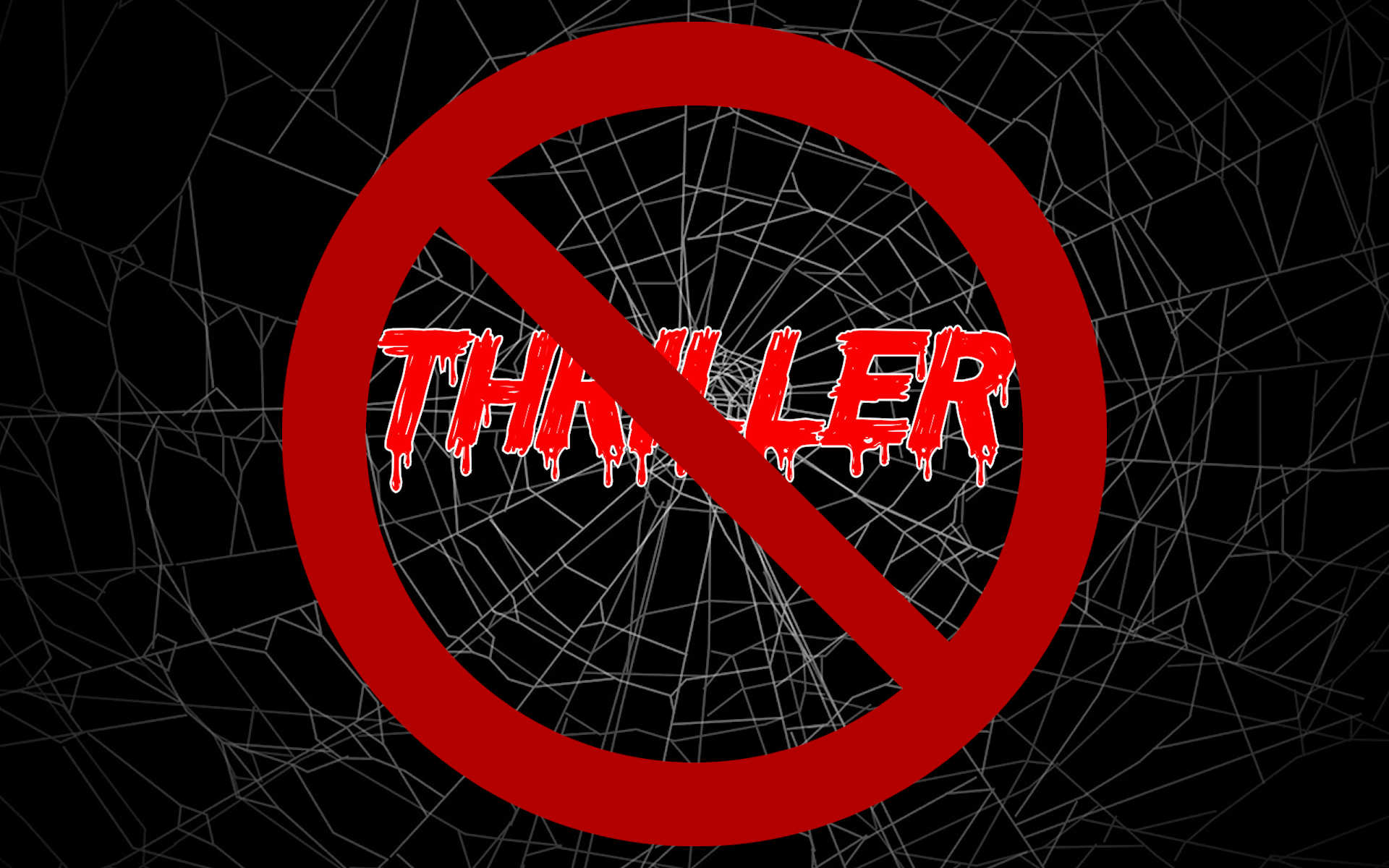Why I Hate the Term "Thriller" - A Rant
It's just a word, right? WRONG!

This is going to be a different kind of article than I’m used to writing – normally, I try to occupy this space with celebrating things I enjoy, but I’ll be switching things up this time around. Earlier this month, I uploaded a rant on the worst movie I’ve ever seen in my life, Exorcist II: The Heretic (1977), so it’s only right that I go on a written tangent just this once. While there are several topics I could choose from – gatekeeping in the metal music community, fickle fanbases, misleading public narratives, the list truly goes on and on – I’m going to discuss one single word, one that agitates me like no other when used a certain way; “thriller.”
I can’t begin to tell you how many times I’ve heard the phrase, “it’s not really a horror movie, it’s more of a thriller,” and while some people may not interpret it this way or know any better, that’s one of the most disrespectful things you can say to a horror fan. Assigning the term “thriller” to a horror film goes way deeper than simply saying someone’s favorite movie sucks – it completely degrades the artistic integrity and merit of the horror genre by making it appear inferior to other narrative classifications.
Horror films have always been looked down upon by critics and scholars to varying degrees – while it’s one of the most successful genres in terms of box office and general audience appeal/interest, it’s historically been rare for a horror movie to receive the awards and accolades that the critics and corporations place so much importance on. Those that are nominated, or perhaps won, are often the ones that would receive the “thriller” label, due to the pretentious notion that “horror” would water down the value of the film. In the eyes of the critics, “thriller” brings more sophistication and esteem, and the term is often used to imply that a film is “too good” to be a horror movie. A popular example is William Friedkin’s 1973 masterpiece, The Exorcist, hailed as one of the scariest movies ever made and the first horror film to receive an Oscar nomination for Best Picture – one of the stars of the film, Linda Blair, strictly refers to it as a “theological thriller,” because she’s of the belief that horror films are second-class to the genres that typically dominate the awards circuit. Therefore, if a horror film does well from a critical standpoint, the only logical explanation for these people to admit they enjoy it or agree with its status is to define it as a “thriller,” instead of simply embracing what it really is.
This is a stigma that unfortunately dominates the academic community as well – award-winning horror movies are referred to as “thrillers” of some sort, and horror-adjacent titles such as Seven (1995) are lumped into the mix too. This fad has only gotten worse in recent years, with the genesis of “elevated horror” and the element of suspense making a return to prominence over the last decade or so. What people fail to realize is that horror films have always had a psychological element to them, from The Cabinet of Dr. Caligari (1920) to Psycho (1960) to The Silence of the Lambs(1991) – nowadays, if a horror film is even remotely character-driven or introspective in any way, critics will immediately jump ship and strictly refer to it as a “psychological thriller.”
I think the most important thing to realize is that “thriller” isn’t even a real genre – while there are people that use the term to stylistically classify films, it’s a redundant thing to do, even with the abundance of genre-hybrid films in recent decades. The films that are commonly referred to as “thrillers” fall under the umbrellas of horror (suspense, psychological horror, etc.), or action/drama (crime/film noir) – with these clear boundaries, what’s the point in unnecessarily assigning these films to a genre that doesn’t even have any reason to exist? The term is nothing more than an academically ostentatious copout for supposed scholars to admit that they enjoyed something that they’re typically not very fond of.
Ironically enough, an analogy I can think of to possibly better explain my position comes from the world of rock music – when the grunge movement was developing and gaining traction in the 90s, several critics and fellow musicians turned their backs on the 80s hard rock artists that ruled the airwaves in the previous decade, such as Mötley Crüe, Poison, and Ratt. To show their distaste for that style of rock, supporters of grunge began to call 80s hard rock “hair metal,” insinuating that those bands took a heavy “style over substance” approach to their songwriting. While “hair metal” has become an affectionate term over the years, the same unfortunately can’t be said for “thriller,” which brings me back to my previous point about these terms being pointless since there are already assigned names and classifications for these particular subgenres.
Perhaps that took longer than necessary to explain, but like I said, we all have to rant every once in a while. Here’s the moral of the story – “thrillers” don’t exist, and horror films should just be embraced for what they are. Thanks for coming to my TED Talk.
Thanks for reading! If you liked this article and want to keep up with more from me, feel free to subscribe

